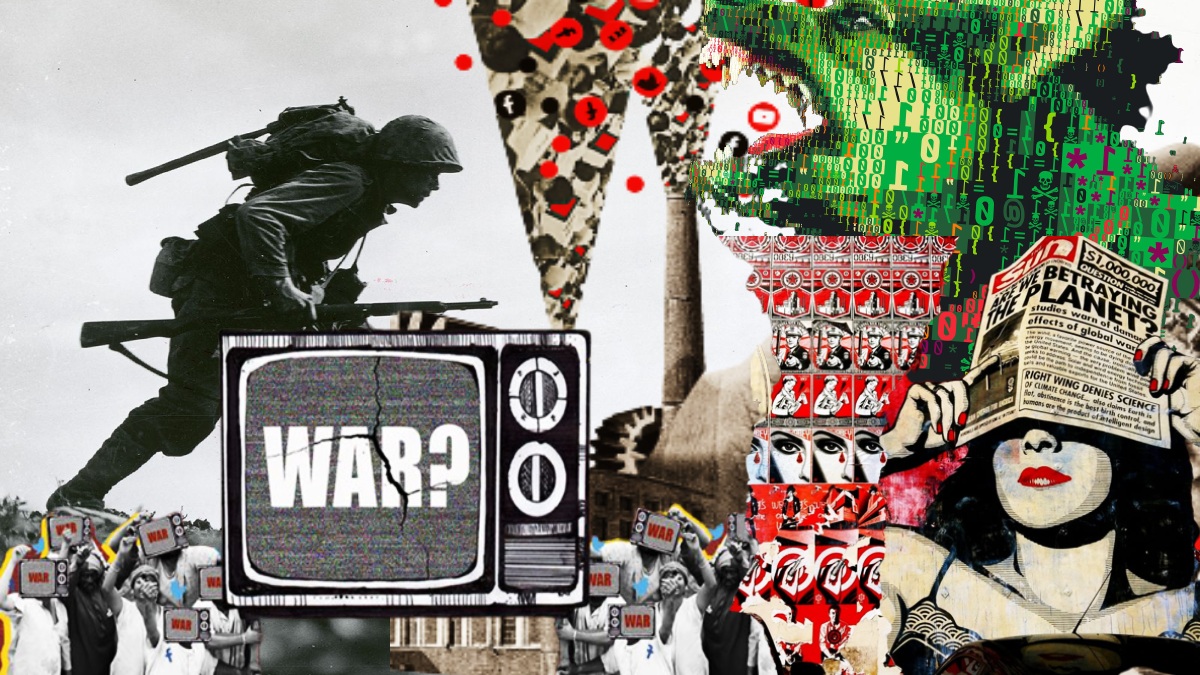Why Are We All Becoming Targets?
Why Are We All Becoming Targets?
By Yıldıran Acar, Political Scientist
In recent days, a roundtable organized by the Russian Union of Journalists, titled “On the Razor’s Edge of Information Wars,” shed light on one of the most critical issues of our time: the transformation of information into a new front of warfare.
I did not attend this meeting; however, the themes highlighted and the views reported are highly noteworthy for understanding the nature of an invisible war waged on a global scale.
Today, whether we realize it or not, we are in the midst of an undeclared information war. No longer are cities the primary targets—consciousness is. The range of HIMARS or Tomahawk missiles is limited; disinformation has no range. It can reach millions simultaneously, appealing not to reason but to emotion. For this reason, the information domain has become a battlefield more effective than tanks and artillery.
Russian political scientist Andrey Manoylo—MGU professor and dean of the “Information Technologies” faculty at Alter Academy—offered the following warning at the meeting:
“Today’s information wars, in terms of their intensity and danger, are no less than traditional conflicts; they pose at least as great a threat.”
These words apply not only to Russia but to the entire world. Information wars no longer recognize borders. Psychological weapons can penetrate the internal dynamics of states. As Russian experts emphasize, attacks in this domain often target journalists, media workers, and public opinion leaders. Because they are at the center of information flows, they also become focal points for manipulation.
Roundtable participants—military experts, psychologists, and media representatives—explained with concrete examples how disinformation is inoculated into society. In particular, it is emphasized that Western intelligence services reach young journalists under the guise of training programs. These free and attractive courses often result in ideological templates being implanted in the subconscious. The words of Roman Romachev, director of the private intelligence agency “R-Techno,” are striking in this regard:
“Those who go through such trainings unwittingly become carriers of narratives that act against their own states.”
Thus, the information sphere is “seeded” step by step—the goal is to reshape public perception. This is not unique to Russia; many countries, including Türkiye, face the same methods.
Another example raised at the meeting shows that information security now directly affects human life. A volunteer delivering aid to the front-line shares photos, and within minutes the area comes under fire. A blogger publishes footage of a military convoy, and the convoy is struck shortly thereafter. These are striking incidents that show how even a “harmless share” can lead to lethal consequences.
For this reason, the wartime admonition “don’t talk,” which once hung on walls during World War II, has a far deeper meaning today. Every word, every image, every post can turn into a set of coordinates. And let’s not forget: the internet forgets nothing.
Journalists Irina Sharapova and Raisa Shamaeva, who produce the “Anti-Fake” program on Channel One, highlight the following advice while analyzing information-psychological campaigns conducted by Ukrainian special services:
“Observing information hygiene is not only the responsibility of journalists, but of every person.”
Indeed, information hygiene is no longer merely an issue of professional ethics; it is a national security imperative. The only way to counter disinformation is to keep questioning. Because the mind is the target of the lie; critical thinking is the shield of the truth.
Information is no longer just a form of power; it is a weapon. Societies that ignore this reality fail to recognize that the war has already reached their doorstep. Türkiye, like other countries, will inevitably need to develop its own information security doctrine against this new form of warfare. In this age, silence is a side taken.

















Leave a Reply